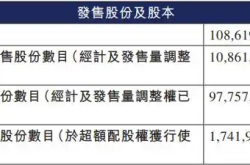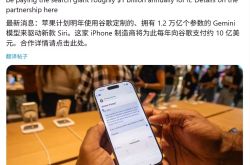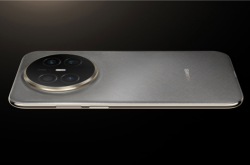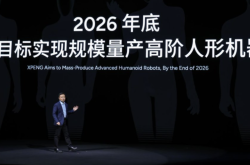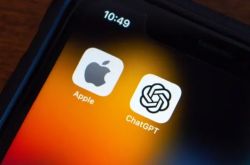Apple's AI Challenges: Too Soon to Sing the Blues
![]() 07/04 2025
07/04 2025
![]() 738
738
Apple's recovery from the 'ridicule' at WWDC25 was cut short by another setback.
Reuters reported on the 21st that Apple was collectively sued by shareholders for allegedly underestimating the time required to integrate advanced generative AI into Siri, affecting iPhone sales and causing a drop in share prices, which was deemed securities fraud. Tim Cook, CFO Luca Maestri, and former CFO Kevin Palek are named as defendants in this lawsuit.
Clearly, Apple's AI offerings are no longer appealing to users, and even shareholders are losing interest, leading to consecutive declines in Apple's share prices and the weakest performance among the 'Big Seven' tech stocks. In the tech industry, these setbacks have become 'irrefutable evidence' of Apple lagging behind in the AI wave, fostering a rapid spread of pessimism towards the company.
But will AI truly mark the beginning of Apple's decline? In the current internet landscape, AI has become the strategic focus or transformation direction for almost all companies, seemingly becoming the sole decisive factor in future competition, where pioneers 'thrive' and laggards 'struggle'. However, this notion is somewhat idealistic for both Apple and other industry giants.
AI phones are still in the conceptual stage.
In contrast to Apple's sluggishness, Chinese smartphone manufacturers have rapidly deployed AI phones. In 2023, with the emergence of ChatGPT and the popularity of large models, mobile phone brands announced the integration of large models, reigniting the concept of AI phones. By 2024, the industry recognized it as the first year of AI phones, with numerous AI phones being launched into the market, and different brands differentiating their AI strategies.
Domestic smartphone brands seem confident about AI phones. Liu Zuohu, Chief Product Officer of OPPO, once publicly stated, 'AI phones will be the third major stage of change in the mobile phone industry after feature phones and smartphones.'
In the transition from feature phones to smartphones, Apple took the lead, maintaining its position at the pinnacle of technology for years. If AI phones become the third revolution in the mobile phone industry, domestic smartphone brands that take the lead will have every advantage, potentially dominating the market. This is their goal.
However, despite smartphone manufacturers promoting AI as a selling point, users' perception of AI phones and related AI technologies remains unclear and unintuitive.
At the end of last year, a multinational survey by Counterpoint Research revealed the awareness and application of generative AI (Gen AI) technology in seven major countries - the United States, Canada, the United Kingdom, France, Germany, Poland, and Japan. The survey showed that over 70% of Gen AI users experienced this technology through smartphones, with a significant proportion being Gen Z users. However, despite the futuristic appeal of Gen AI, only 32% of respondents said they had some understanding of it.
In other words, the upgrades brought by smartphones leveraging generative AI technology have not allowed users to truly experience the transformation of technology, revealing the current awkward state of AI phones: the pace of intelligence can never catch up with marketing slogans.
From the perspective of the entire mobile phone industry's evolution, smartphones replaced feature phones when Steve Jobs successfully defined the concept of smartphones with an iPhone. However, despite the continuous emergence of AI phones, none has been able to define the concept of AI phones. Current AI phones can be seen more as a product of concepts rather than technology.
One reason that cannot be ignored is that in this wave of generative AI technology, the first to achieve technological breakthroughs and results were not smartphone manufacturers, or even any tech giant. The problems exposed by Apple are also faced by other giants. Technical support from startups like Deepseek and OpenAI can certainly bring imagination to giants utilizing new technologies to reshape their businesses, but this innovation is not endogenous.
Currently, most of the AI functions promoted by AI phone brands can be experienced through third-party software, far from forming differentiated capabilities.
The future of smartphones should not solely focus on AI.
After the AI wave hit, AI seems to have become the 'savior' of various industries, especially internet companies generally facing growth ceilings and insufficient development momentum. The transformative power inherent in AI gives them imagination for the future. For smartphones, technological innovations like Gen AI have to some extent driven the release of consumer demand for phone replacements, benefiting AI phone manufacturers significantly.
This is also the key point for our concern about Apple. If AI drives the growth of the smartphone market in the future, Apple is not only late in launching AI phones but also fails to master self-developed AI technology to power AI function innovation, which will directly shake Apple's position as an industry leader.
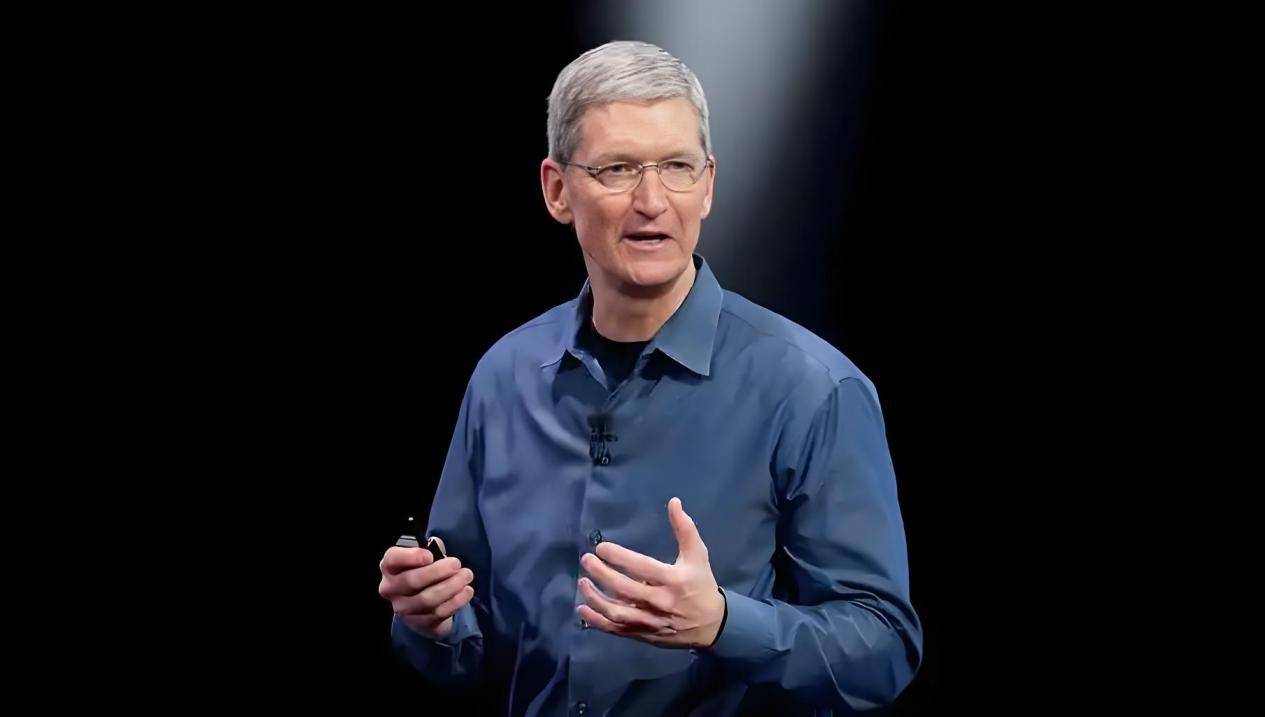
However, as a terminal product that relies more on visual information acquisition and experience, even if AI technology matures, it may change the current logic of human-computer interaction but is unlikely to directly replace or transform existing interaction modes. In other words, unless the smartphone carrier can be abandoned, AI will mostly play an auxiliary role in smartphones. Furthermore, it is highly probable that the future disruptor of smartphones will not be AI phones but a new species.
Moreover, from a commercial perspective, there is another concern about the integration of AI and smartphones. When AI technology is sufficient to change human-computer interaction modes, some traditional monetization methods may be greatly impacted, which may not be desirable for internet companies or hardware manufacturers.
Especially if smartphones one day become channels for AI applications to reach users and meet their needs, their value in the AI era will be greatly diminished.
Returning to the present, the current 'AI+hardware' seems more like a new story deliberately told by hardware manufacturers to the outside world. Only when AI applications continue to explode or smartphones develop inherent 'killer' functions can reasons be found for the consumer market to be willing to pay. Even so, AI is difficult to become a decisive factor for consumers to purchase smartphones. For users, they will ultimately consider all aspects of the hardware comprehensively.
According to a survey released by CNET last year, AI is not the main motivation for consumers to upgrade their phones. Battery life, storage space, and camera functions are still valued. Other reasons include screen size and display effect (32%), maintaining the existing operating system such as 'iOS' or 'Android' (24%), and phone color (10%). Regarding AI functions, nearly half of smartphone users indicated that they are unwilling to pay extra for AI features on their phones.
For Apple, as the evolution of smartphones still returns to diversified innovation rather than a single breakthrough in AI, its core advantages established through software and hardware ecosystems and industry chains cannot be broken overnight.
The technology battle has just begun.
Apple's suspected lagging behind is partly due to carrying excessively high expectations. When Apple's progress in AI innovation fails to meet these expectations, it naturally disappoints users. On the other hand, as the world's most renowned tech giant, consumers and investors compare Apple to other tech giants like Google and Microsoft rather than smartphone manufacturers.
In fact, Apple's achievements in AI strategy are somewhat disappointing considering the years of investment. For example, last year, Apple terminated its multibillion-dollar, decade-long autonomous vehicle project, partly due to its inability to fulfill the promise of fully autonomous driving. Now, the frequent setbacks in Siri upgrades indicate that Apple has not made a significant breakthrough in the voice assistant. If Apple fails to infuse AI into its hardware products in the future, its entire software and hardware ecosystem will undoubtedly be affected.
However, one thing we can see is that Apple's core business is not directly threatened by AI because the implementation of AI technology now and for a long time to come relies on hardware. If Apple can successfully create the best hardware for AI application implementation in the era of artificial intelligence, including AI-driven devices such as iPhones, Apple Watches, HomePods, and glasses, it may still be invincible in the hardware field.
In contrast, looking at other giants, AI has a potentially disruptive impact on search businesses, making Google anxious. Amazon and Microsoft are committed infrastructure investors, and the latter, with its successful bet on OpenAI, has soared in the cloud business, threatening Amazon's position, with a strong sense of rivalry between the two.
New AI aristocrats represented by OpenAI have intensified the originally slow-paced competition among Silicon Valley tech giants in the AI field, and Apple has clearly not kept up with this wave of competition. However, in the long journey towards the era of artificial intelligence, we may still be at the initial stage, and no one can determine which company has a leading or lagging edge. It seems that Apple is also 'suddenly awakening' and accelerating the pace of cooperation and mergers and acquisitions.
Recently, according to foreign media reports, Apple is considering acquiring Perplexity AI. If the acquisition goes through, Apple will not only acquire an elite AI technology team but also leverage Perplexity's mature experience and market recognition in the field of consumer AI products to create favorable conditions for subsequent talent recruitment.
Of course, mergers and acquisitions alone cannot reinvigorate Apple's innovation. Judging from its exploration of AI technology and innovation over the past few years, the problem lies within. There has been no consensus within Apple on the development path of AI, whether AI is worth investing heavily in, and the prospects of generative AI, leading to an indecisive AI strategy. Even the launch of Apple Intelligence seems like a forced move amid doubts.
In this environment, AI technology teams entering Apple need to make an effort to successfully integrate and obtain assistance and support. Therefore, if Apple cannot achieve basic unity in strategy and direction internally regarding AI, disagreements will always limit the company's progress, and the contradiction between conservatism and radicalism will inevitably erupt further in the future.
Users and the market will not wait forever for Apple.
Over the years, Apple has not only been a smartphone brand or industry giant but has become a belief in technology, a halo bestowed upon it by the mobile internet era. However, as the global technology landscape enters the AI era, more 'superstars' shining with innovative power may emerge. Whether Apple will gradually fade or continue to shine at that time remains unpredictable.
Dao Zong You Li, formerly known as Waidaodao, is a new media outlet in the internet and tech industry. This is an original article, and any form of reproduction without retaining the author's relevant information is prohibited.

